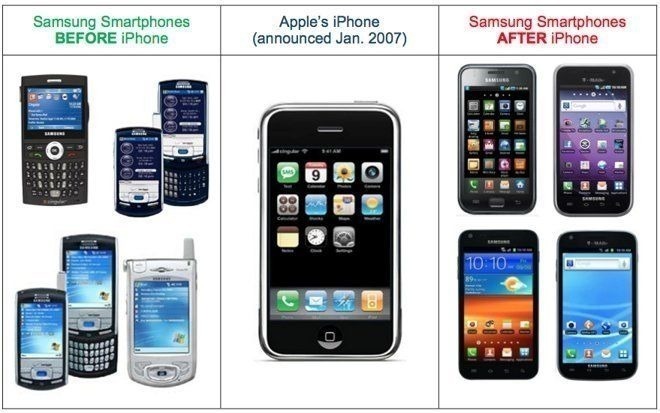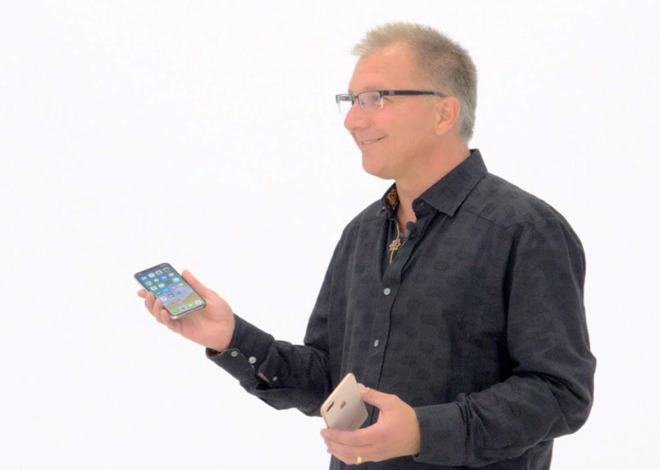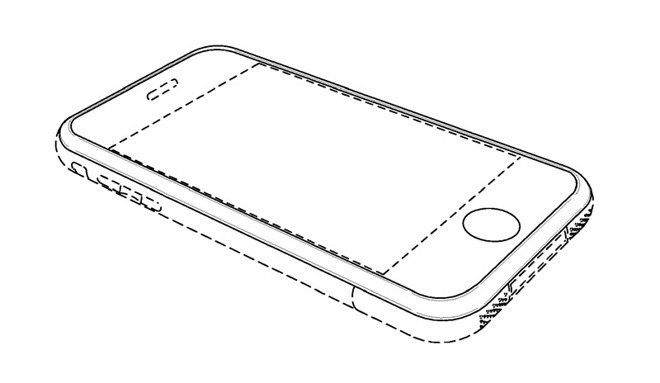Jurors in the latest courtroom battle between Apple and Samsung have delivered their verdict siding with Apple, deciding Samsung needs to pay Apple $533 million for infringing utility and design patents relating to the iPhone with its own devices.
After days of deliberating, a federal jury handed down its verdict in the Apple v. Samsung case on Thursday, declaring the South Korean tech giant owes $533,316,606 for infringing on Apple's iPhone design patents. Another $5.3 million was awarded for two utility patents.
The figures were shared by legal reporter Amy Miller and Stephen Shankland on Twitter.
Samsung lawyer John Quinn told Judge Lucy Koh he had some issues with the verdict that would be addressed in post-trial motions.
The trial is a continuation of the courtroom battles between the two tech giants, which first took place in 2012, a time when Apple was awarded $1 billion in damages. It was found by the court that Samsung had violated a variety of Apple's patents, including those for the "Bounce-Back Effect" and "Tap to Zoom."
A settlement appeared to be reached in 2015, reducing the amount to $548 million, while the case continued to go through the appeals process.
In late 2016, the case reached the U.S. Supreme Court, which ruled unanimously in Samsung's favor in December 2017, deciding that design patents only cover individual smartphone components and not the entire mobile device. The ruling meant the case was sent back to a lower court for a damages re-determination.
As part of the new trial, the burden was not on Samsung to disprove the entire smartphone is an "article of manufacture," but instead with Apple. The iPhone producer had to convince the court that the infringed patents apply to the whole product, not individual components.
The latest trial started on May 14, and after a difficult jury selection process, was spread out across the week. Jurors started their deliberations on Friday and continued after the weekend on the following Monday, before making their decision today.
In this case, the decision the jurors made determined how much Samsung has to pay Apple as part of the infringement, rather than whether the infringement took place at all. While Apple wants the full $1 billion for the infringement, Samsung had previously advised it was willing to pay $28 million.
The first witness in the trial was Apple marketing VP Greg Joswiak, testifying that design was an important part of the company, critical even before the 2007 debut of the iPhone. Apple attorneys showed the jury photographs of products including Macs, iPods, Powerbooks, and MacBooks to drive the point of design being "in the DNA of the company."
As Apple was "betting the company" on launching the iPhone, Joswiak noted this caused Apple to file for a vast number of patents to protect its design and other elements, such as communications techniques.
On Wednesday, Apple expert witnesses Adam Ball and original Mac designer Susan Kare continued to argue the merits of Apple's patents. Importantly, the pair sided with Apple's legal team in viewing three granted designs as applicable to iPhone's "articles of manufacture."
Samsung's lawyers did manage to get concessions from both Ball and Kare, acknowledging smartphones are made from individual components. Kare admitted "I get that a display screen is a thing," and agreed that Apple's patent illustrations included dotted lines that, while providing a complete picture of the iPhone concept, are not necessarily covered in its claims.
Ball conceded the iPhone could be dismantled into parts, but stressed the Jury should keep focusing on the final design. "Just because you can take something apart doesn't mean it was designed to be that way," said Ball. "If you replace [a component], you're trying to get back to that thing that you bought."
Samsung's expert witness, accountant Michael J. Wagner, largely discussed the Korean giant's accounting practices. Asked by Apple counsel Bill Lee if Samsung balances its sheets by tallying profits from components, Wagner said "no" to each item.
Lee's questioning seemingly tried to prove that Samsung also believes that, from a financial standpoint, an article of manufacture is the whole device and not individual parts.
Wagner also confirmed Samsung made $3.3 billion on the sale of 8.6 million smartphones that were found to have infringed Apple's design patents, but that figure is based on taking the entire mobile device into consideration, not specific infringing components.
In the closing arguments, Apple lawyer Joe Mueller reiterated expert witness points, declaring "the fact you can pull apart a phone means absolutely nothing. The question is what did they apply those designs to. It's not a pane of glass. It's not a display screen that doesn't show a GUI. It's the phone."
By contrast, Samsung lawyer John Quinn told the jury "The Apple design patents do not cover anything on the inside of the phones. They don't even cover the entire outside. Under the law, Apple is not entitled to profits of any article of manufacture to which the design was not applied."
 Malcolm Owen
Malcolm Owen









-m.jpg)






 Andrew Orr
Andrew Orr

 William Gallagher
William Gallagher

 Wesley Hilliard
Wesley Hilliard







-m.jpg)




86 Comments
It’s okay they’ll just have to make fun of Apple in all of their commercials now
Can Samsung appeal this decision or is it final? It’s about time Apple got a jury that understood things.
Too bad they couldn't get treble damages.
Pay up Scamsung/Samesong. Add in legal fees for losing- which should be substantial.